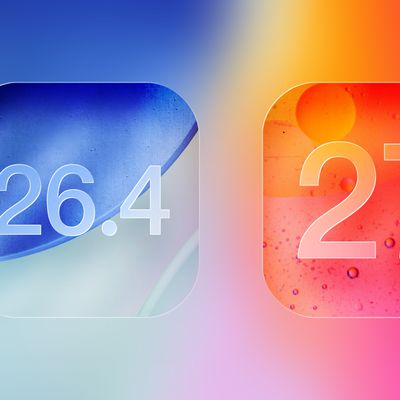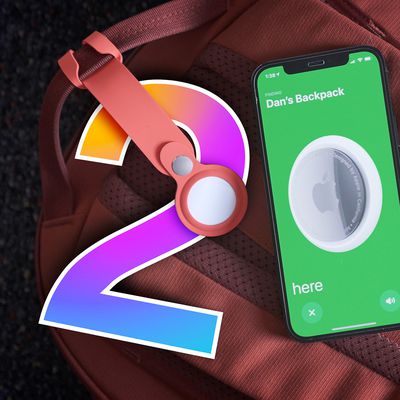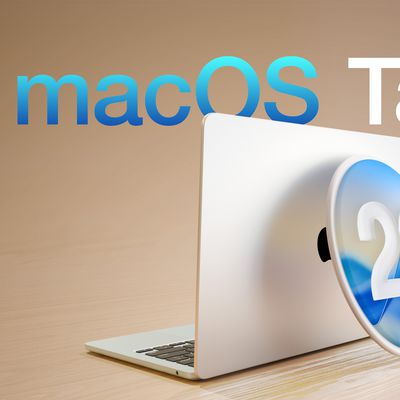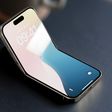Sony Introduces Next-Generation Image Sensor to Advance Mobile Device Cameras
Sony today announced (via Macworld UK) the launch of new image sensor technology that the company expects will help improve performance and shrink the size of cameras on mobile devices by later this year. The new back-illuminated complementary metal–oxide–semiconductor (CMOS) image sensor utilizes a pixel section layered directly onto the sensor's circuitry, significantly reducing the sensor size from the previous design that utilized pixel and circuit sections side-by-side on a substrate layer.
This image sensor layers the pixel section containing formations of back-illuminated structure pixels onto chips containing the circuit section for signal processing, which is in place of supporting substrates for conventional back-illuminated CMOS image sensors. This structure achieves further enhancement in image quality, superior functionalities and a more compact size that will lead to enhanced camera evolution.
With sampling set to begin in March, the new stacked CMOS sensor includes built-in signal processing technology and utilizes the company's "RGBW Coding" that adds white-light sensors to the traditional red, green and blue, offering better low-light camera performance. Enhanced high dynamic range (HDR) technology will also improve the sensor's movie capabilities in bright-light situations.

Apple had utilized OmniVision Technologies as its image sensor supplier on its mobile devices, but Sony was able attract at least part of Apple's business with the new 8-megapixel sensor on the iPhone 4S. With its new image sensor technology, which is set to enter mass production in the fall and begin appearing in products late this year or early next year, Sony is clearly looking to remain at the forefront of the booming mobile device camera market.
Popular Stories
Apple seeded the second iOS 26.2 Release Candidate to developers earlier this week, meaning the update will be released to the general public very soon.
Apple confirmed iOS 26.2 would be released in December, but it did not provide a specific date. We expect the update to be released by early next week.
iOS 26.2 includes a handful of new features and changes on the iPhone, such as a new...
Macworld's Filipe Espósito today revealed a handful of features that Apple is allegedly planning for iOS 26.4, iOS 27, and even iOS 28.
The report said the features are referenced within the code for a leaked internal build of iOS 26 that is not meant to be seen by the public. However, it appears that Espósito and/or his sources managed to gain access to it, providing us with a sneak peek...
Apple today released new firmware designed for the AirPods Pro 3 and the prior-generation AirPods Pro 2. The AirPods Pro 3 firmware is 8B30, up from 8B25, while the AirPods Pro 2 firmware is 8B28, up from 8B21.
There's no word on what's include in the updated firmware, but the AirPods Pro 2 and AirPods Pro 3 are getting expanded support for Live Translation in the European Union in iOS...
Apple today released iOS 26.2, the second major update to the iOS 26 operating system that came out in September, iOS 26.2 comes a little over a month after iOS 26.1 launched. iOS 26.2 is compatible with the iPhone 11 series and later, as well as the second-generation iPhone SE.
The new software can be downloaded on eligible iPhones over-the-air by going to Settings >...
Google Maps on iOS quietly gained a new feature recently that automatically recognizes where you've parked your vehicle and saves the location for you.
Announced on LinkedIn by Rio Akasaka, Google Maps' senior product manager, the new feature auto-detects your parked location even if you don't use the parking pin function, saves it for up to 48 hours, and then automatically removes it once...
The AirTag 2 will include a handful of new features that will improve tracking capabilities, according to a new report from Macworld. The site says that it was able to access an internal build of iOS 26, which includes references to multiple unreleased products.
Here's what's supposedly coming:
An improved pairing process, though no details were provided. AirTag pairing is already...
Apple today released macOS Tahoe 26.2, the second major update to the macOS Tahoe operating system that came out in September. macOS Tahoe 26.2 comes five weeks after Apple released macOS Tahoe 26.1.
Mac users can download the macOS Tahoe update by using the Software Update section of System Settings.
macOS Tahoe 26.2 includes Edge Light, a feature that illuminates your face with soft...
Apple is about to release iOS 26.2, the second major point update for iPhones since iOS 26 was rolled out in September, and there are at least 15 notable changes and improvements worth checking out. We've rounded them up below.
Apple is expected to roll out iOS 26.2 to compatible devices sometime between December 8 and December 16. When the update drops, you can check Apple's servers for the ...


























